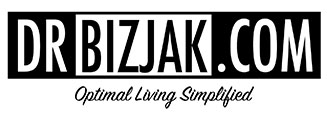We are inundated with information these days. The internet floods our brains with facts, figures, ideas, and opinions in amounts our brains were never really designed for. To make things worse, much of that information, despite coming from reputable, qualified sources, is often contradictory.
It’s bad enough that we have to navigate through it all, deciding which information to retain and utilize, and which to discard. But on top of that, we have those around us pushing upon us their thoughts, ideas, and interpretations of the information they get. While these people mean well, we have to remember that following the advice of others is not always what is best for us. Generally, there are three types of advice.
The first type of advice is good advice. It is information that is sound, solid, usually scientifically validated, and proven to be useful. Good advice can come from anyone at any time. The source does not need an advanced degree, does not have to know you, nor do they have to give that advice on purpose. You may pick it up by hearing about a mistake they have made, and experience they had, or something they were told by someone else. Good advice can come at any time, but will usually only be useful because it is given at the particular moment you need it based on what you are currently experiencing. Good advice is just that… good. It is information that can be helpful to you. And the right advice, at just the right time, can be not just good, but great.
The second type of advice is useless. We all know people who want to share the latest and greatest information they have just learned, touting it as something you must know. While a lot of this information may be interesting and factual (most of it is neither), this information does you no good. You would be fine, and carry on just fine in life, without it. It is neither bad nor good, and may serve you down the road at a later time, but it is just information you gain no advantage from knowing. I think it’s safe to say that most advice you get falls into this category, and most people giving this type of advice mean well, but it still ends up being useless.
The third type of advice is the one you need to be most aware of. This advice is bad advice. This type of advice not only fails to benefit you in any way, but can be very harmful if followed, making it the most important to catch. It can be tricky because the people giving this advice can be highly intelligent, viewed as experts, and even mean well. But this type of advice will often take you further from your goal and could end with serious (negative) consequences.
As a healthcare provider, I hear about all three types of advice being given to my patients. When people are struggling or seeking a way to regain their health, they tend to listen to more people about more stuff. Sick or hurting people tend to believe more of what they hear, so they tend to take almost any advice, and who can blame them? I am a big fan of trying lots of things when it comes to improving health, but when taking advice, you must be on high alert to how that advice is impacting you.
The area that I see bad advice coming from the most right now may surprise you… the medical profession. It is often the most difficult to spot because we have put so much faith and trust in these so-called experts. They often neglect the cause of your health issues and treat the symptoms. And the treatment almost always comes with risks and side effects. While there are times that the benefits outweigh the risks, there may be better, safer alternatives out there for you. The advice these medical doctors give may be the best advice they have, but that is simply because it is the only advice they know to give.
I recently had a patient who was advised (prescribed) to take a medication that has known, and likely, adverse effects for a condition that can be maintained by making a few simple lifestyle changes. The advice to begin taking the medication would not only ignore the underlying cause of her problem…allowing that condition to worsen, but also likely cause her more harm. That makes it bad advice! The lifestyle changes that I would recommend would not only correct the underlying cause, but would also have positive side effects as well. This makes it (very) good advice!
Humans have been sharing information since the beginning of our existence, and it is how we have survived (and thrived) for so long and so well. I would never want to discourage you from taking advice. But when taking advice, you must note whether it is helping, doing nothing, or causing more harm. And no matter the source, a homeless person on the streets, old aunt Louise, or your renowned medical doctor, you must determine as quickly as possible if it is good, useless, or bad advice.







